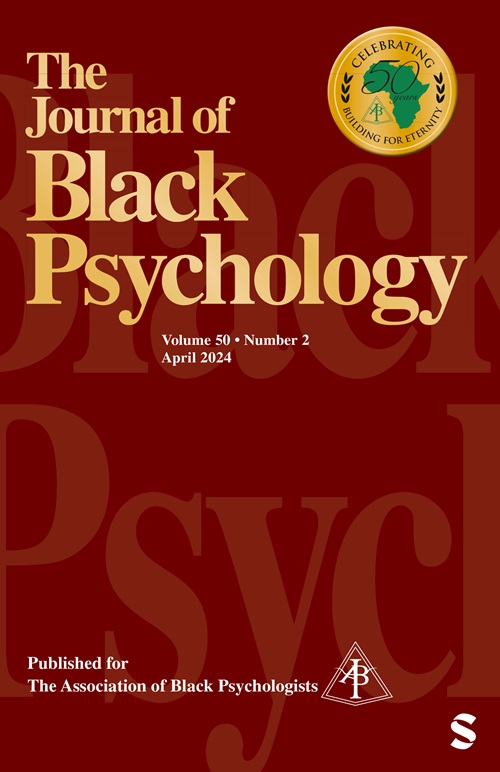远离阳光:探究非裔美国大学女性对肤色歧视与阳光相关行为之间动态关系的思考
IF 2.2
3区 心理学
Q2 PSYCHOLOGY, MULTIDISCIPLINARY
引用次数: 1
摘要
肤色歧视——基于肤色的系统性群体内歧视,对非裔美国女性产生了独特的影响。本研究采用顺序混合方法设计,探讨了非裔美国大学女性对肤色歧视和与太阳有关的行为的看法。研究1包括14个深度访谈,揭示了非洲裔美国女性更喜欢浅肤色的看法,这种偏好会影响与太阳有关的行为。研究2采用基于访谈评论的自我管理问卷(n = 187)。研究结果表明了一种内化的现状:参与者认为肤色歧视在非裔美国人中普遍存在,并认为对浅肤色的偏好影响了日常生活,包括避免晒太阳。个人肤色偏好不如参与者对他人偏好的感知那么清晰。研究结果指出了肤色歧视和与太阳有关的行为之间可能存在的联系,揭示了内化信念、主观规范和行为之间的相互关系。理解肤色歧视的根深蒂固的角色和与太阳有关的决定的社会背景将肤色歧视的研究从社会心理领域扩展到行为领域。影响可以提高从业人员对肤色歧视的认识,使干预措施能够促进非裔美国妇女的适当健康教育和福祉。本文章由计算机程序翻译,如有差异,请以英文原文为准。
Stay out of the Sun: Exploring African American College Women’s Thoughts on the Dynamics Between Colorism and Sun-related Behavior
Colorism—systematic intragroup discrimination based on skin color—uniquely affects African American women. Using a sequential mixed methods design, this study explored perceptions of colorism and sun-related behavior among African American women in college. Study 1, which included 14 in-depth interviews, revealed perceptions that lighter skin is mostly preferred among African American women and that this preference can influence sun-related behavior. Study 2 featured a self-administered questionnaire (n = 187) based on interview commentary. Findings indicated an internalized status quo: Participants deemed colorism prevalent among African Americans and believed that preferences for lighter skin influenced daily life, including sun avoidance. Personal skin color preferences were less clear than participants’ perceptions of others’ preferences. Results pinpointed a possible connection between colorism and sun-related behavior, unveiling interrelationships among internalized beliefs, subjective norms, and behavior. Understanding colorism’s entrenched role and the social context of sun-related decisions extends colorism research from the psychosocial realm to the behavioral. Implications can increase practitioners’ awareness of colorism, enabling interventions to promote appropriate health education and wellbeing among African American women.
求助全文
通过发布文献求助,成功后即可免费获取论文全文。
去求助
来源期刊

Journal of Black Psychology
PSYCHOLOGY, MULTIDISCIPLINARY-
CiteScore
8.00
自引率
5.80%
发文量
22
期刊介绍:
The Journal of Black Psychology publishes scholarly contributions within the field of psychology toward the understanding of the experience and behavior of Black populations. This includes reports of empirical research and discussions of the current literature and of original theoretical analyses of data from research studies or programs. Therefore, the Journal publishes work in any of the areas of cognition, personality, social behavior, physiological functioning, child development, education, and clinical application, in addition to empirical research and original theoretical formulations outside traditional boundaries, all integrated by a focus on the domain of Black populations and the objective of scholarly contributions.
 求助内容:
求助内容: 应助结果提醒方式:
应助结果提醒方式:


